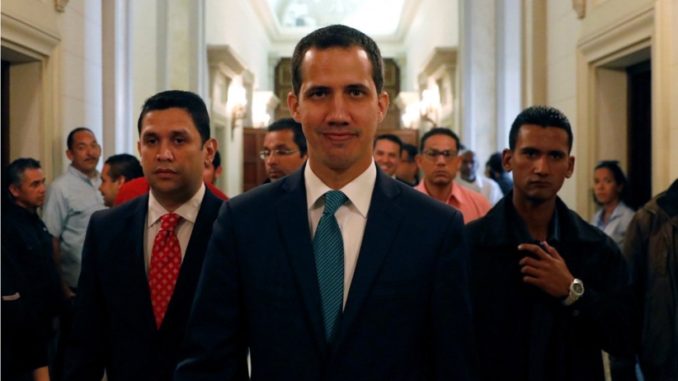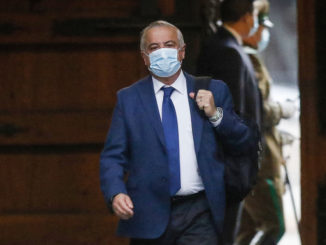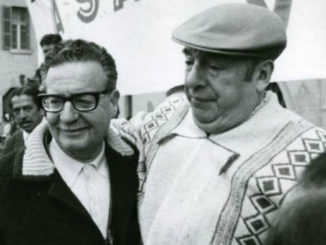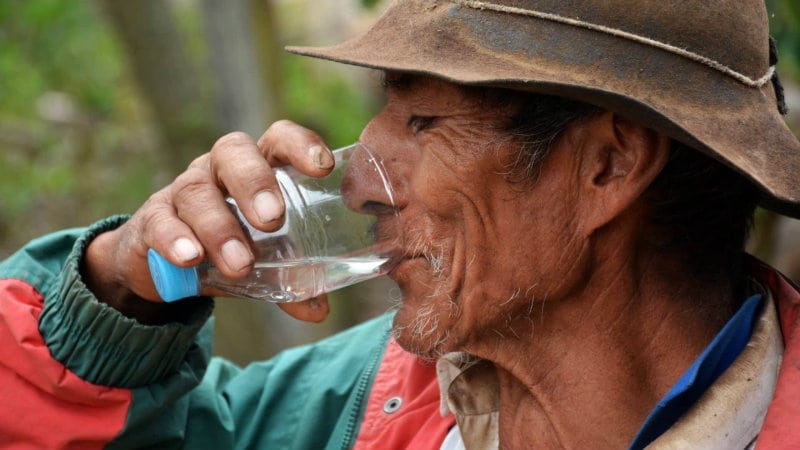
MADRID – Spain, Britain, Germany, Austria, Sweden and Denmark officially recognized Juan Guaidó as interim president of Venezuela on Monday, while France said the opposition leader had the right to organize an election in the face of the socialist government’s refusal to call new elections.
“The Government of Spain announces that it officially recognizes Juan Guaidó as president in charge of Venezuela,” Spanish President Pedro Sánchez said in a statement read before the media.
Reconozco como presidente encargado de Venezuela a @jguaido, con un horizonte claro: la convocatoria de elecciones presidenciales libres, democráticas, con garantías y sin exclusiones.
No daré ni un paso atrás.
Por la libertad, la democracia y la concordia en #Venezuela— Pedro Sánchez (@sanchezcastejon) February 4, 2019
To which followed a tweet from the British Foreign Minister, Jeremy Hunt: “Nicolás Maduro has not called presidential elections within the 8-day limit that we have established (…) So the United Kingdom, together with the European allies, now recognizes @jguaido as interim constitutional president. ”
Gracias al Gobierno del Reino Unido por reconocer la lucha el pueblo de Venezuela.
Valoramos profundamente su apoyo y estamos seguros de que juntos lograremos salir de esta crisis política, social, económica y humanitaria.#EuropaEstáConVzla https://t.co/SHP9VQIn4O
— Juan Guaidó (@jguaido) February 4, 2019
The coordinated movement of European countries comes after the expiration of eight days that the European Union gave Venezuelan President Nicolás Maduro to call a new presidential election.
The Venezuelan leader, accused of running the OPEC nation as a dictatorship and ruining his economy, has said Europe’s ruling elite is sycophantic and is following the agenda of US President Donald Trump.
Guaidó, who heads the National Assembly controlled by the opposition, proclaimed himself president last month provoking a division among the world powers.
Trump recognized it immediately and countries of the European Union backed Guaidó, but some are nervous about the precedent that someone feels self-proclaimed.
Russia and China, which have invested billions of dollars in Venezuela, are supporting Maduro. Moscow accused the EU countries of meddling in Venezuela’s affairs.
How Venezuela responded?
The Venezuelan government said it would “fully review” its relations with the European governments who had recognised Mr. Guaidó.
A foreign ministry statement said those governments were “officially submitting to the United States administration’s strategy to overthrow the legitimate government of President Nicolas Maduro”.
On Sunday Mr. Maduro dismissed calls for a new presidential vote, saying he would not accept “ultimatums”. He has denounced Mr. Guaidó’s move as a coup.
As head of Venezuela’s National Assembly, Mr. Guaidó says the constitution allows him to assume power temporarily when the president is deemed illegitimate.
Meanwhile, the Lima Group of Latin American countries and Canada called Monday for a peaceful change in government in Venezuela, without military intervention.
Eleven of the group’s 14 members said in a joint statement after meeting in Ottawa that they “reiterate their support for a process of peaceful transition through political and diplomatic means without the use of force.”
They also urged Venezuela’s military to support opposition leader Juan Guaido as interim president and “not to impede the entry and transit of humanitarian assistance to Venezuelans.”
Guaido’s “legitimate government of Venezuela” was also welcomed into the Lima Group.
Earlier Canadian Prime Minister Justin Trudeau pledged Can$53 million (US$40 million) in humanitarian aid for Venezuelans amid a deepening crisis.
The bulk of the funds are to go to “trusted partners” and neighboring countries to help them support three million refugees that have fled Venezuela, he said.
Mr. Maduro, who took office in 2013 after the death of Hugo Chavez, has been condemned for alleged human rights abuses and for his handling of the economy.
The annual inflation rate reached 1,300,000% in the 12 months to November 2018, according to a study by the National Assembly.
According to United Nations figures, three million Venezuelans have left the country since 2014 when the economic crisis started to bite.



